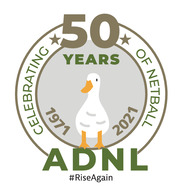Adults at Risk
Safeguarding legislation has moved away from the term ‘vulnerable adult’, instead using the term ‘adult at risk’. This term illustrates that it is the circumstances that people with care and support needs are in that causes them to be at risk of abuse or neglect.
An “adult at risk” is an individual aged 18 years or over who:
In the case of an adult, the starting assumption must always be that an adult has the capacity to decide and has the right to do so unless it can be established that they lack capacity.
An “adult at risk” is an individual aged 18 years or over who:
- has needs for care and support or is more vulnerable due to an infirmity or disorder than adults who are not so affected.
- is at risk of harm, abuse, or neglect.
- is unable to safeguard or protect themselves from those risks
- In a sporting context, clubs and event organisers may work with:
- People who have a physical disability, whether from birth or acquired through injury, illness or advancing age, ranging from those who can train and compete independently but need some assistance in transition, to those who depend on others for physical care and support
- People who are blind or visually impaired, who may need to be guided around a course or at training
- People who are deaf or hearing impaired, whose needs are largely connected to communication and inclusion
- People who have learning disabilities or who for some other reason (e.g., brain injury, dementia) may not have the capacity to make independent decisions or to assess risk.
- People who are at risk due to a specific circumstance they may find themselves in, for example: domestic abuse, forced marriage, sexual or commercial or financial exploitation.
In the case of an adult, the starting assumption must always be that an adult has the capacity to decide and has the right to do so unless it can be established that they lack capacity.
|
England Netball Safeguarding Team Sarah Wassell – Safeguarding Lead [email protected] 01509277911 England Netball, SportPark, 3 Oakwood Drive, Loughborough, Leicestershire, LE11 3QF |
ADNL Safeguarding Team
Molly Gaffney – Safeguarding Lead Safeguarding Team can be contacted by email: [email protected] or Text/WhatsApp 07923 208825 |


